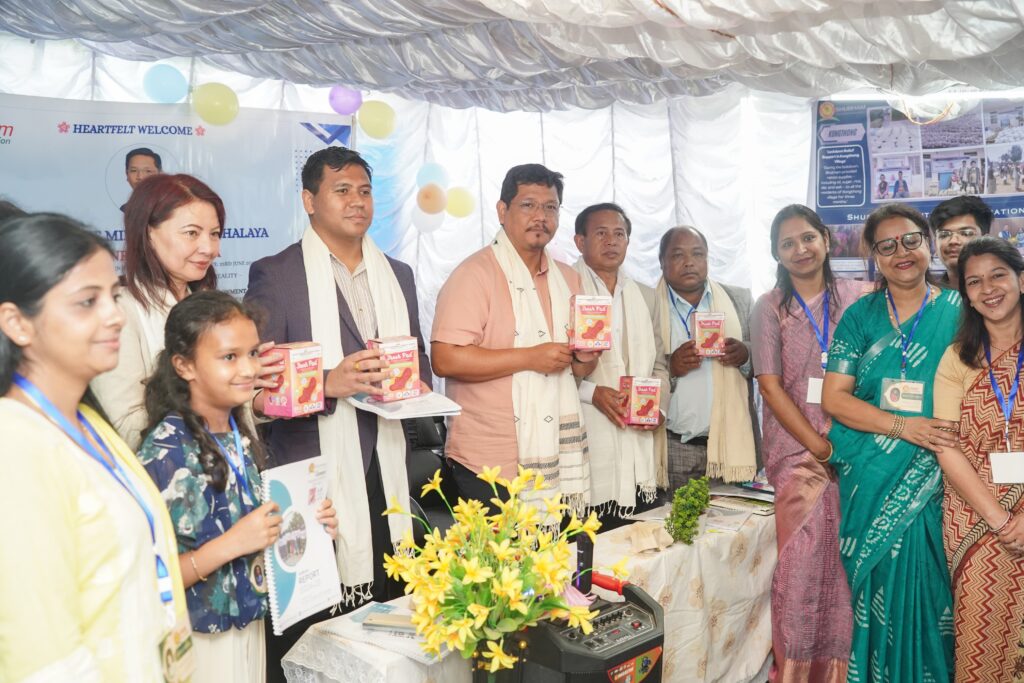Shillong, June 23 : Meghalaya Chief Minister Conrad K. Sangma today inaugurated “She-Rise,” the North East region’s first production unit for reusable sanitary pads, located in Laitkroh, East Khasi Hills District. This pioneering “Zero Waste Period Mission” is an initiative of the Shubham Charitable Association under the state’s Green Meghalaya Mission.
Chief Minister Sangma hailed She-Rise as more than just a production unit, calling it “a movement that promotes menstrual hygiene, protects our environment, and empowers our women.” He emphasized the project’s dual benefits, stating, “By offering safe, affordable, and eco-friendly alternatives, we are addressing a vital public health issue while building resilient communities.”
The project received crucial support through the Chief Minister’s Special Grant (CMSG), with an allocation of ₹5 lakh used for machinery and equipment procurement. The initiative has already created employment opportunities for over 25 women.
Lauding the Shubham Charitable Association’s efforts, Chief Minister Sangma announced plans to scale up the project across Meghalaya. “We are committed to expanding this initiative to other parts of the State and encouraging more women-led organizations to join this cause,” he affirmed. He added that this expansion would not only create jobs but also “help normalize conversations around menstrual hygiene and ensure that no girl is held back because of lack of access to basic sanitary care.”
The Chief Minister also revealed the government’s broader strategy, which includes investing in vending machines for sanitary pads in schools and plans to introduce reusable sanitary pads across educational institutions in partnership with the Education and Social Welfare departments.
Puspa Bajaj, founder of the Shubham Charitable Association, reiterated the fundamental right to menstrual hygiene. “We are working to break taboos, promote eco-conscious choices, and support women’s dignity with sustainable solutions,” she said. Bajaj also mentioned their ongoing efforts to explore local fabric alternatives, including bamboo and banana fiber, for the reusable pads.








